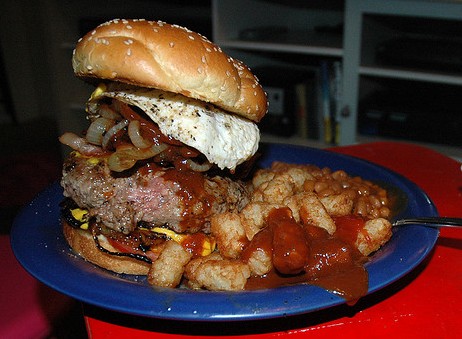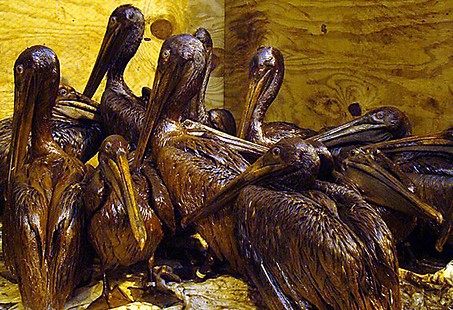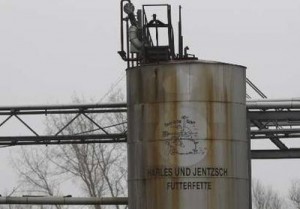Suppose that the company that supplies our water notified us that from now on it would deliver water that was perfectly safe — as long as we boiled it before we touched it. We would be in the streets with placards and pitchforks before noon. Yet the food industry takes the position that its responsibilities are met when it delivers to us meat that is safe — as long as it is heated to 160 degrees Fahrenheit before we touch it. And we have accepted this with the silence of the proverbial lambs.
The New York Times has given this remarkable arrangement some attention with a long take [“E. Coli Path Shows Flaws in Beef Inspection”] that showcased the plight of a 22-year old woman nearly killed, and left paralyzed, by a hamburger tainted with E. Coli and not sufficiently cooked. (See! It was the cook’s fault! In this case her mother, now plagued by guilt.) Like most writing on the subject, the Times spends a lot of time emphasizing the “there oughtta be a law” aspect of the issue, faulting the US Department of Agriculture for its lackadaisacal inspection practices, as if we could somehow legislate or inspect our way away from the effects of this industrial weapon of mass digestion.
The Times does a very good job of detailing how hamburger is assembled, making it clear that it should be handled in our kitchens in the same way as any other lethal biohazard. And it profiles the Mafia-like ethics of the hamburger grinders who refuse to sell their product to anyone who threatens to test it for purity. “Nice store you got here. Be a shame if anything happend to it.” (Once again, Costco stands out here as one of the few ethical companies on the planet: they test all the burger they buy before they mix it or process it further.)
But the Times piece does not point out that the food industry not only refuses to control this threat to public health — it created it! By force-feeding corn to grass eaters, industry turns the contents of their four stomachs into acid that makes the cows sick and kills most of the E. Coli bacteria that used to l;ive there happily and benevolently, helping in the digestion of grass. The surviving bacteria were 1) acid tolerant and thus able to survive where they had never been able to before — in human stomachs, and 2) teenage mutant ninjas with some weird weapons, such as incredibly potent shiga toxins, as few as 50 of which can perforate your intestines, infect your blood and destroy your kidneys.
But, hey, you’re perfectly safe as long as you, or your hamburger provider, heat the meat to 160 degrees, sterilize all utensils, pans and dishes that touched it prior to heating, and incinerate all clothing, towels or furniture that came in contact with it.
The Times says that the paralyzed young woman “ran out of luck in a food-safety game of chance.” They should have named the game. It’s not canasta, it’s Russian Roulette.
Suppose that the company that supplies our water notified us that from now on it would deliver water that was perfectly safe — as long as we boiled it before we touched it. We would be in the streets with placards and pitchforks before noon. Yet the food industry takes the position that its responsibilities are met when it delivers to us meat that is safe — as long as it is heated to 160 degrees Fahrenheit before we touch it. And we have accepted this with the silence of the proverbial lambs. Continue reading →







